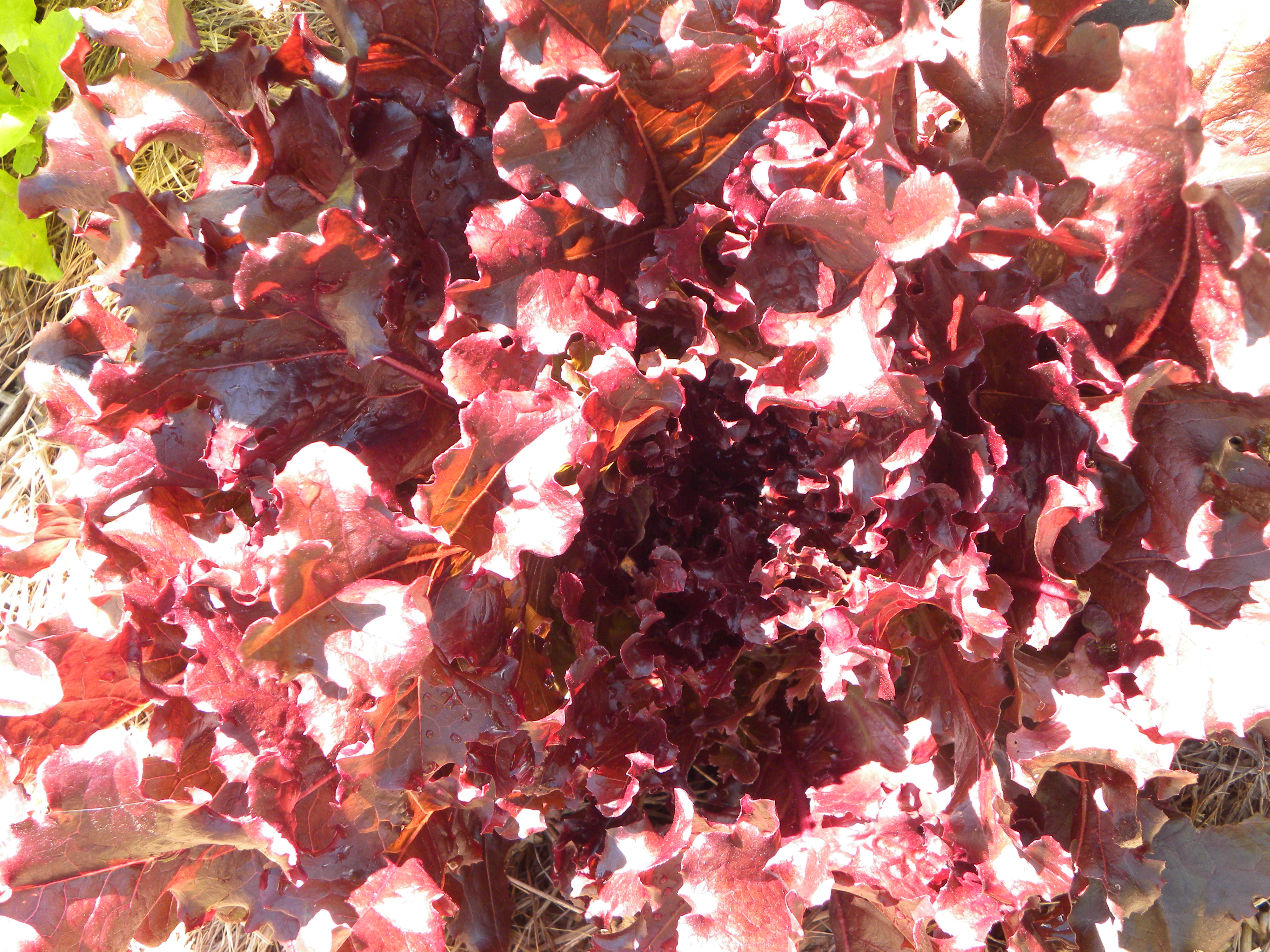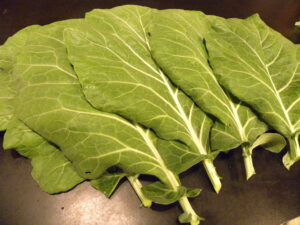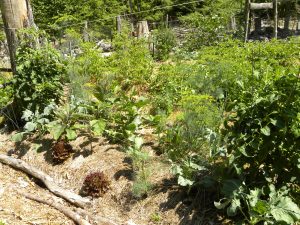
The Garden in July
I am a committed, joyful gardener who wants to teach everyone else to grow their own food, too! I encourage others to garden NOT because it’s easy and anyone can just do it. I have heard stories from people about how they tried gardening but ran into so many problems that the 10 tomatoes they ended up with likely cost them $15 each. It is frustrating and does happen! But I believe that it’s worth not giving up, rising to the challenge and learning the skills you need to have your own garden. Here are a few reasons why…
Environmental Benefits
For a few thousand years, many agricultural systems have created as many problems as they have grown food. The big traps we fall into are: monocultures, soil disturbance, and more recently, chemical use. Our current US conventional ag system is guilty of all of these sins.
Now, however, we have the information needed to grow in ways that can heal the planet. We can even reverse climate disruption if these techniques are implemented on a wide-scale! There are great people and groups leading new movements to change our large-scale food systems.
Another answer that I see clearly is that smaller food systems can be much easier to manage well and efficiently. More growers working smaller pieces of land can address problems of air & water pollution, water consumption, soil erosion and soil carbon loss while building a community’s food sovereignty (ability to feed themselves).
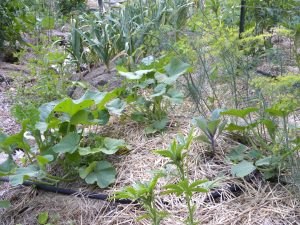
Garden, Mid-July
In your own garden, no-till is easy, diversity an obvious choice, and chemicals become unnecessary as you build healthy soil. You can eliminate food miles, use far less water, create healthy habitats for pollinators and other creatures, and sequester carbon in your own backyard!
Save Money
While there is the phenomonom of the $15 tomato, with a bit of skill and some good choices, gardening can absolutely save you money. The key is to identify what you like to eat, consider the prices for buying these, and find out which are easy crops to grow.
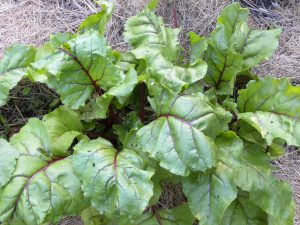
Beet Tops
Herbs and greens are pricey, high-end items, so if you love salad and basil, those should go to the top of your list. If you don’t like beets – don’t grow them. Even though they are an easy crop, this will feel like wasted effort in the end. Now, I know most everyone loves tomatoes, but – they are not easy to grow in New England! Tomatoes are a heat-loving crop that, in my experience, do better in dry conditions – does that sound like our climate? In our humid summers, there are numerous blights that will attack them, causing them to turn ugly and die before you get much from them. Actually, last year’s terrible drought in our area gave us the best tomato crops we’ve ever seen. If those conditions continue, maybe tomatoes
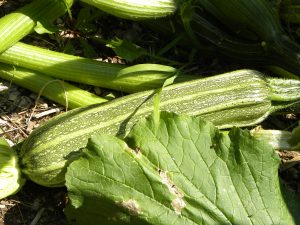
Zucchini
will become easy here, but meanwhile, be careful!
Don’t go overboard on one veggie either – remember that diversity is necessary in a healthy garden, and that by the 50th zucchini, it will start to feel less like well-deserved bounty and more like a curse.
Your Health
Every day there seems to be another study pointing to good nutrition as a key to good health. One of the problems we face is that much of our food contains fewer minerals and more chemical residues than in the past. You can buy certified organic (higher priced food in this case is actually cheap compared to health care costs). You can also give even more attentive care to a small plot you watch over and know you and your family will eat from.
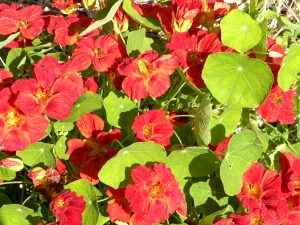
Red Nasturtiums
We also now know that gardening has positive effects on mood. Less depression and anxiety is a great bonus, don’t you think?
Connection to the land
It’s great to admire, love and watch our landscapes and wildlife. But, I think it’s even better for us to understand on a visceral level how much we depend on the land, the earth. In the US, where so many of us have been here for merely a few generations, we often lack a sense of rootedness and connection to place. We move and travel and don’t like to feel “tied down.” I don’t believe this is working out well for us.
First, I think it makes it easier to tolerate and ignore wrongs being done to the land when we think we can just move on.
Let me share with you this excerpt from an interview with author and environmentalist, Derrick Jensen: “It’s really problematical, because we can talk all we want, but the truth is, if my experience is that my water comes from the tap, I will defend to the death the system that brings that to me, because my life depends on it. If my experience is – not my philosophy – but if my experience is that my food comes from the grocery store I will defend to the death the system that brings that food to me, because my life depends on it. If on the other hand, my experience, my reality is that my water comes from a river then I will defend to the death that river, because my life depends on it. If my experience is that my food comes from a land base, from not a land base, but this land base, my land base, my home, I will defend to the death that land base because my life depends on it. So that’s part of the problem, we’ve been made dependent on this very system that is killing us.”
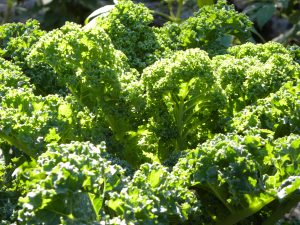
Kale
Second, I believe many people would feel happier and more secure if they felt they did belong somewhere. (Making this sort of commitment to a place doesn’t necessarily mean you own that land, by the way.)
How well do you know the place you live? How was it used in the past? What sounds do you expect to hear when you open your windows this spring? What does the soil smell like after a rain? Where does water run across the landscape? How does food taste grown there?
My life is enriched just by asking these questions and looking for the answers.
As Robin Wall Kimmerer says in her book Braiding Sweetgrass: “This is really why I made my daughters learn to garden—so they would always have a mother to love them, long after I am gone.”
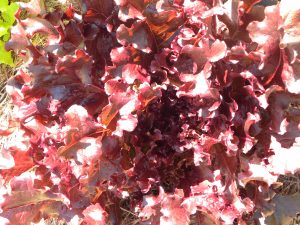
Red Oak Lettuce

